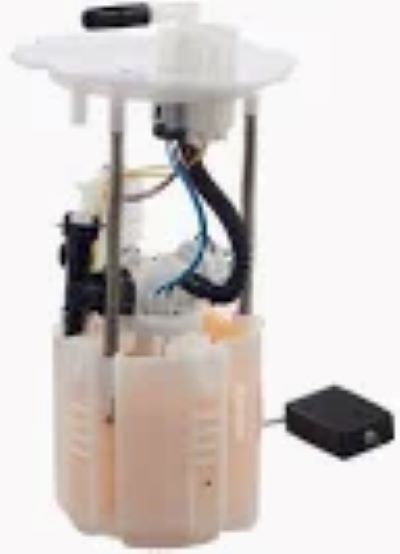It is important to identify when the fuel pump is clogged so that it does not affect your cars performance. There are many symptoms, but some of the more common ones include a significant loss of engine power with acceleration being greatly affected, regardless if it still moves or does not due to the pump getting clogged and depriving itself by up to 30% less fuel flow. This might be due to the car struggling to start, indicating that the fuel system isn't supplying enough pressure, usually in the range of 40-60psi for most cars.
A poor idle is yet another sign that a blockage may have occurred. If the engine battles multiple rough idles before it hits a stable RPM this would imply that the fuel pump capacity has reached its max and cannot give you all of the fuel needed. Research has shown that a fuel filter that is clogged, and therefore not moving fuel through as quickly as it should (or if at all), could cause the pump to work harder than normal and have a greatly shortened service life.
In other cases, you might hear whining or sputtering noises coming from the fuel tank indicating that the pump is straining because there is a problem supplying it with an adequate volume of gasoline. So much so, that as automotive technician Mark Johnson points out, less cyclic: “A noisy fuel pump often means a problem is around the corner” upon which we are naturally less likely to act –texting while driving syndrome… ….

Frequently stalling engine: If the vehicle keeps on stalling more so after driving for a while, this most likely indicates that the fuel pump isnt successfully able to maintain and deliver consistent fuel pressure; which in an automobile or truck is quite critical. In this way, fuel delivery is not what it should be, and the engine can also stall as a result of the fluctuations.
If a dirty fuel filter has been checked, the condition of the filter should be considered closely as can restrict flow and aggravate pump issues. The fuel system should undergo a regular maintenance schedule, like replacing the fuel filter at every 30,000 to 50,000 miles.
Feel free to also find out more about how you can manage your fuel system, including tips on the Fuel Pump and recognizing these symptoms is a sure fire way in which you can make sure your vehicle works perfectly. Intervention in time can also save you from heavy repairs and improve your overall driving experience.
